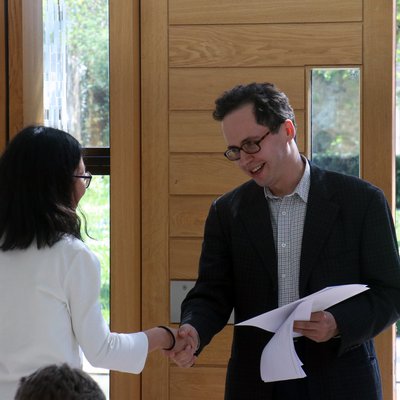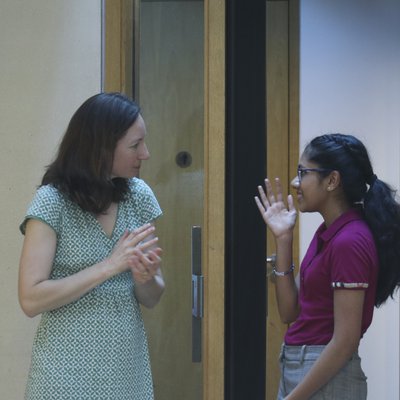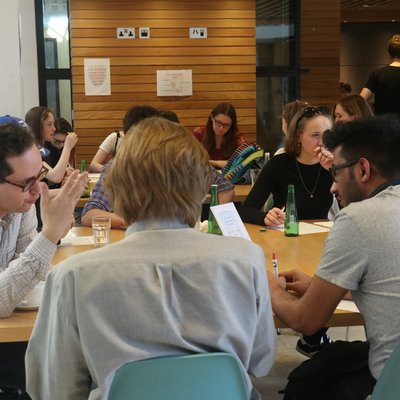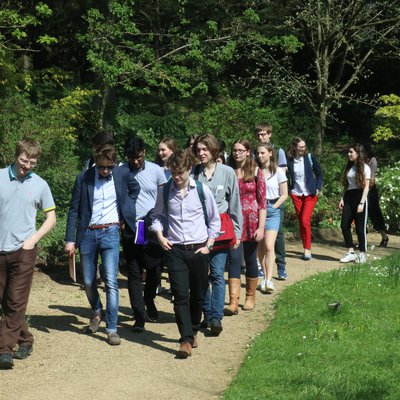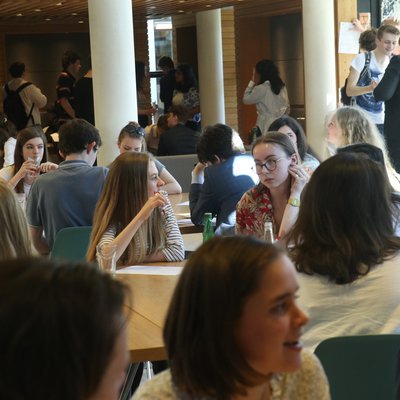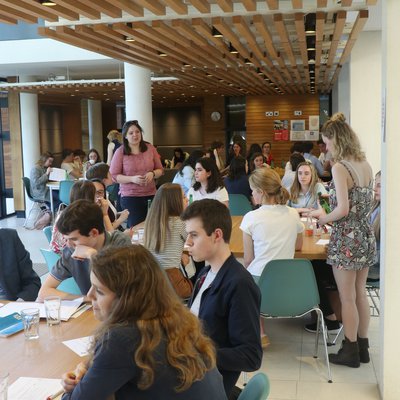'Interactions with gods' at the Classics Study Afternoon
All the students had
entered the annual St John’s Classics
& Ancient History Essay Competition, open to all students currently
studying in Year 12 or equivalent, anywhere in the UK, whether or not they are currently studying a classical or ancient history subject. A total of 156
students submitted essays, from 95 schools around the country, and all were invited to
the Study Afternoon.
The participants enjoyed a series of four lectures on archaeology, philosophy, literature and history from St John’s tutors, united by the theme of ‘Interactions with the gods’. Professor Alison Hills spoke on gods and morality in the Euthyphro, Dr Kantor spoke about divination in Roman politics, Dr Lucy Audley-Miller explored how the gods were encountered by ancient Roman people through their images, and Dr Giulia Fanti’s talk addressed the subject of gods in Lucretius’ De rerum natura.
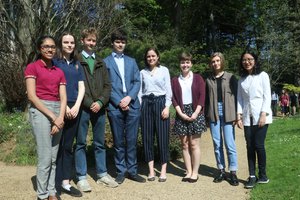 In the Essay Competition, students answer one of a range
of set questions on archaeology, philosophy, literature and ancient history.
The purpose of the competition is to promote independent research and encourage
an interest in the study of the ancient world, in pupils who may or may not
have studied Classics at school. In the awards ceremony the best essay in each
category was awarded a £100 book token, with an additional £75 book token for
the overall winner. An additional four essays were ‘highly commended’ by the
tutors.
In the Essay Competition, students answer one of a range
of set questions on archaeology, philosophy, literature and ancient history.
The purpose of the competition is to promote independent research and encourage
an interest in the study of the ancient world, in pupils who may or may not
have studied Classics at school. In the awards ceremony the best essay in each
category was awarded a £100 book token, with an additional £75 book token for
the overall winner. An additional four essays were ‘highly commended’ by the
tutors.
The winners were:
Literature: Naomi Cooper
How do gods and fate help the development of the epic plot? Discuss with examples from Greek and/or Latin literature.
History – and Overall Winner: Hye Lim Park
How can we write Graeco-Roman history from the point of view of the poor?
Philosophy: Vidya Divakaran
‘I know nothing except that I know nothing’ (Socrates). Is it possible for someone to teach if he does not know anything?
Archaeology: Maia Mellentin
‘We shape our tools and thereafter they shape us’. If correct, what are the implications of this statement for the field of Graeco-Roman archaeology?
Highly Commended:
Rachel MacNaghten – Literature
Mark Selby – Literature
Emma Starbuck – History
Nathaniel Watson – Philosophy
Students also enjoyed a tour of College on a
gloriously sunny afternoon, and informal discussion sessions over tea with the tutors
and current students, on all aspects of living and studying at St John’s. They clearly enjoyed their visit; asked about what they enjoyed the most:
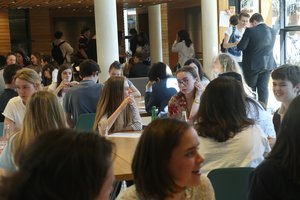 'getting to further my classical understanding and being able to explore areas of study that wouldn't have otherwise been available'
'getting to further my classical understanding and being able to explore areas of study that wouldn't have otherwise been available'- 'the philosophy and archaeology talks as these are things I haven't had much opportunity to study at school. I also enjoyed meeting like-minded individuals in my age group'
- 'having the opportunity to know what reading Classics here consists of and thus helping with my choosing of a course'
